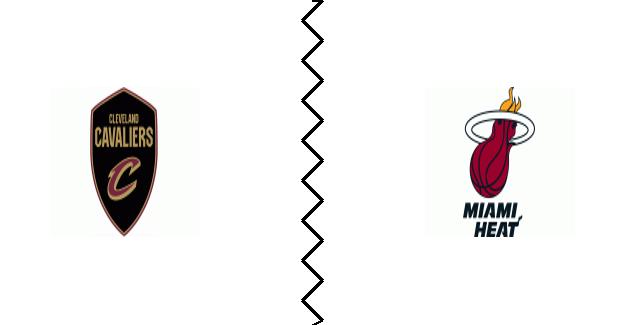2025-04-28 Cleveland at Miami Matchup Preview

The Cleveland Cavaliers and Miami Heat face off in a pivotal playoff matchup where adjustments and execution will determine which team gains the upper hand.


Offensive Outlook: Cleveland Cavaliers
The Cleveland Cavaliers enter this contest boasting a potent offense that thrives on creating second-chance opportunities and efficient ball movement. Throughout the regular season, Cleveland secured an offensive rebounding percentage of 25.9, and has increased that to 29.5 in the playoffs. They couple their offensive rebounding ability with strong ball movement as exemplified by their assist percentage of 63.1 during the regular season, but it has decreased to 59.2 during the playoffs. Cleveland's ability to secure offensive rebounds and move the ball are important components to their success. They need to maximize their possessions in order to win on the road.Defensive Response: Miami Heat
Miami's defensive scheme relies on limiting second-chance opportunities and disrupting passing lanes. The Heat held opponents to a defensive rebounding percentage of 75.9 during the regular season, demonstrating their commitment to securing the defensive glass and have decreased their defensive rebounding percentage to 70.5 during the playoffs. Miami does a good job of forcing teams into stagnant offensive sets as they allowed an opponent assist percentage of 64.3 during the regular season and have lowered it to 59.2 in the playoffs. Containing Cleveland's offensive rebounding will be key to limiting second-chance points and controlling the tempo of the game for the Heat.Offensive Strategy: Miami Heat
The Miami Heat's offensive approach is centered around ball movement and three-point shooting. The Heat posted an assist percentage of 65.3 throughout the regular season, indicating their emphasis on teamwork and generating open looks. They have decreased their assist percentage to 60.2 in the playoffs. Miami's proficiency from beyond the arc is evident in their three-point percentage of 36.7 during the regular season, increasing to 40.9 in the playoffs, showcasing their ability to stretch the floor and create spacing for driving lanes.Defensive Counter: Cleveland Cavaliers
Cleveland's defensive strategy revolves around disrupting passing lanes and limiting three-point opportunities. The Cavaliers demonstrated their ability to pressure opposing offenses by forcing an opponent turnover percentage of 12.4 during the regular season and have significantly improved it to 15.6 in the playoffs. Cleveland also effectively contested shots from beyond the arc, holding opponents to a three-point percentage of 35.9 during the regular season. However, their opponent three-point percentage has increased to 40.9 in the playoffs, so they have to improve. Cleveland will look to exploit Miami's turnover issues while limiting open looks from beyond the arc.Pace and Efficiency
The Cleveland Cavaliers have played at a pace of 99.8 possessions per 36 minutes during the regular season, indicating their preference for a faster-paced game. The Miami Heat, on the other hand, have operated at a pace of 96.2 possessions per 36 minutes, suggesting a more deliberate and controlled style of play. Cleveland showcases a turnover percentage of 11.6 during the regular season and have improved to 9.0 in the playoffs, while Miami shows a turnover percentage of 12.4 during the regular season but have increased to 15.1 in the playoffs. The Cavaliers need to maintain the differential and take advantage of possessions.Defensive Tenets
Cleveland’s defensive principles often involve a focused effort to control the paint and force opponents towards the perimeter, utilizing help rotations to contest shots and disrupt dribble penetration. In contrast, Miami’s defense is characterized by aggressive perimeter pressure and a willingness to switch on screens, aiming to disrupt offensive flow and force turnovers. Cleveland needs to continue to force turnovers as they have in the playoffs while Miami needs to play better defense and force turnovers as they did in the regular season.Intangibles
Turnovers could be a deciding factor, and while both teams have been inconsistent in this area, the team that protects the ball better will be in a stronger position to win. Cleveland's higher regular season win total of 64 games compared to Miami's 37 suggests a greater level of consistency. Miami's home-court advantage could provide a boost, but Cleveland's playoff experience might help them handle the pressure.Prediction
Given Cleveland's offensive rebounding prowess, defensive tenacity, and higher win total, they appear poised to win a close one on the road. Miami will make it difficult with their ability to shoot the three ball, but Cleveland will manage to secure enough possessions to squeak out a win.Predicted Score: Cleveland 107, Miami 105